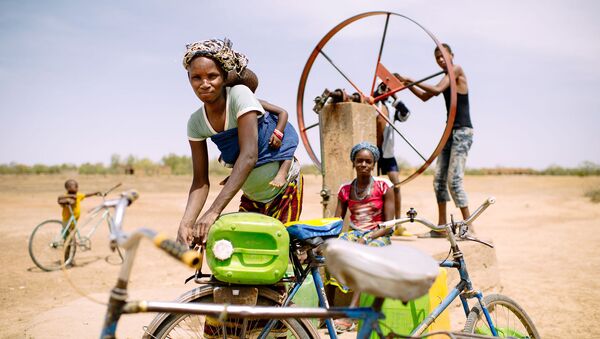Ahead of this week's United Nation's climate change conference in Bonn, Germany, charity Oxfam has taken aim at December's deal, saying the West had failed to commit to any significant investment targets.
"People living in poverty are the most vulnerable to severe droughts, crop losses, famines, floods, and disease linked to climate change. Small-scale farmers across the world are already dealing with these effects, but are being left on their own," the report, titled 'Unfinished Business' says.
Oxfam officials continued: "the Paris agreement does not guarantee that poor countries will receive the financial support they need to afford expensive climate adaptation measures, such as flood defenses and drought-resistant crops."
#ParisAgreement's unfinished business: Millions need help to adapt to #climatechange now: https://t.co/2L5JDPsTNu pic.twitter.com/fjRbXUfOYJ
— Oxfam International (@Oxfam) May 16, 2016
Campaigners say that while the Paris climate change deal does call on wealthier countries to help others fund such climate change management strategies, the agreement "doesn't specify how much money, when it would be distributed, how it's being counted, or how it'll be raised."
The Cost of Climate Change
Oxfam is now calling on world leaders to negotiate more specific funding guidelines ahead of November's climate change summit in Morocco.
The charity estimates that only 16 percent US$100 billion annual amount pledged by wealthy nations in 2009 to help poor countries on the issue of climate change and carbon emissions has been paid.
Remaining On Track Between #COP21 Paris and #COP22 Marrakech — WWF Infographic #SB44 #ParisAgreement #ClimateAction pic.twitter.com/SExwVkLrOK
— Stefan Henningsson (@shenningsson) May 16, 2016
The cost of converting to a carbon free future, combined with measures aimed at combating climate change, is estimated to cost developing nations as much as US$500 billion a year by 2050, according to a report released by the UN last week.
"This issue cannot be kicked down the road any further," Oxfam climate change expert Tracy Carty said.
"We've known about the growing gap in adaptation funding for years now, and we were dismayed when the Paris agreement failed to fix it. We need to see specific commitments in Bonn to increase adaptation finance and for that money to be spent supporting small farmers who are on the front lines of the climate crisis."
"We're already seeing the price of failure; tens of millions of people around the world face hunger and poverty from the droughts and crop failures caused by El Niño."
While the Paris climate change deal was hailed as "historic" back in December, many climate campaigners have criticized the agreement, arguing that while it compels countries to live up to promises, it doesn't force signatory states to meet aims or firm commitments.
#Climatechange is very much an equity issue. #ElNino pic.twitter.com/xdXwLN98OY
— UNICEF (@UNICEF) May 16, 2016
The issue of climate change is a particularly pertinent matter for many low-lying Pacific island nations, who fear rising sea levels may force some of their citizens to evacuate their homes in years to come.


